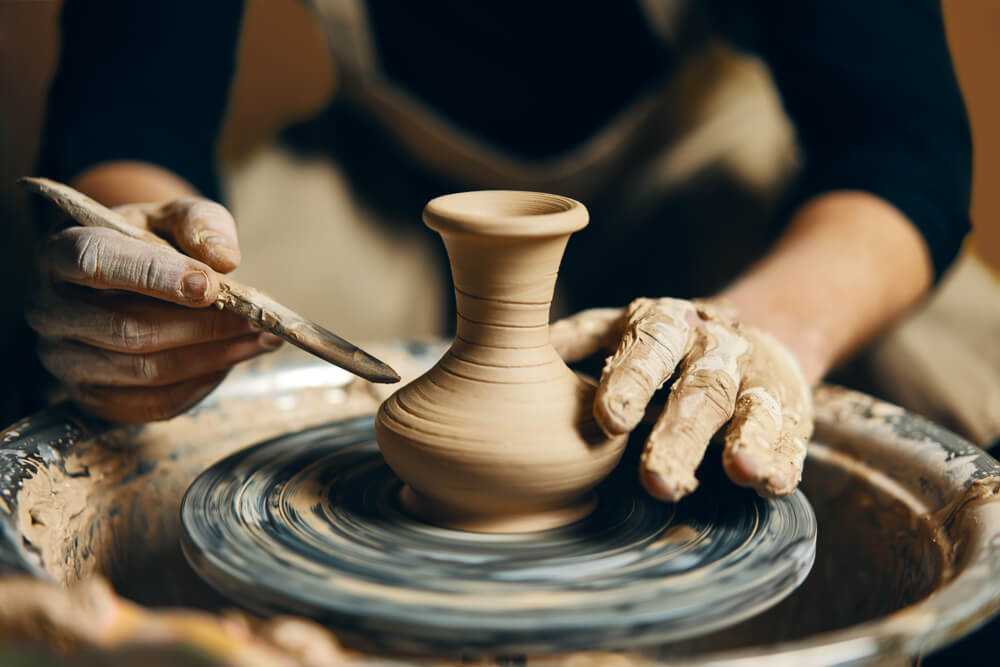Working with the hands is a way to strengthen our psychological health. Modeling, weaving, processing, sculpting, planting, sewing, painting, etc. All of these tasks turn out to be excellent activities to stimulate the brain.
In addition, they are a sensational way to relieve stress, improve neural plasticity, optimize dexterity, as well as concentration and even mental tranquility.
- The connection between hand and brain is a fundamental link for humans that serves as feedback to promote our neural development.
- A reality known for decades in anthropology and psychology.
Therefore, for example, it is necessary to encourage children to play with manual games and to perform tasks that favor fine motor skills to contribute, in this way, to the development of their brain.
However, what most of us realize is that the age of majority often leads us to abandon the magic of these manual activities, unless they are part of our work, we usually refer them, tools like the mobile phone or computer even replace handwriting.
During exercise, for example, we focus on the activity of our body, but we forget about the hands, their mobility and, above all, their great creative potential.
Creative use of hands through the most varied tasks can improve our mood. We will review more information about this below.
“Fingers of one hand: five cardinal points pointing to infinity” – Fabrizio Caramagna-
In a way, we can say that we have reached a point in our society where manual competition is being devalued.
Office positions, work teams, marketing, advertising, engineering, economists, technology companies . . . All these areas favor other fundamentally intellectual skills.
However, essential work areas like construction, agriculture, auto repair, pipeline construction, or electrical grids still need a skilled pair of hands to solve everyday problems, to keep the most basic things from getting started.
The two areas, intellectual productivity and manual productivity, remain essential in our daily lives.
However, it should be noted that from today’s neuropsychology a very interesting point of view has emerged: this tendency of recent decades to glorify intellectual work at the expense of the manual is likely to diminish.
Moreover, abstaining from working with your hands would be contrary to human nature. Neuroscientists like Dr. Kelly Lambert of the University of Richmond in the United States have discovered something very interesting: doing manual labor reduces the rate of depression.
Tool manufacturing has allowed the homo species to evolve into who we are now. This axis formed by the eyes, hands and brain is considered a fabulous intellectual and emotional constellation that continues to bring multiple benefits within us.
However, we are neglecting that axis
At least that’s what Dr. Kelly Lambert explains in her book Lifting Depression: A Neuroscientist’s Hands-On Approach to Activating Your Brain’s Healing Power.
It is about looking for a type of manual activity that activates our neural reward circuit, activity that involves some cognitive effort, in addition to concentration and pleasure for what we are able to achieve.
One thing you should know is that just learning how to model, sculpt, or weave won’t make our depression go away.
Working with our hands is a catalyst, a way to change the chemistry of our brain, to induce a state of internal well-being that, in addition to other strategies such as psychotherapy, can give excellent results.
However, let’s take a closer look at what our brain gains when we work with our hands:
In conclusion, it is important to highlight one last detail, not all manual tasks generate psychological benefits, if we work in a factory or assembly line, this repetitive task is unlikely to produce well-being.
The aim, therefore, is to carry out an activity that consists of working with the hands, but that also requires the involvement of curiosity, passion and interest.
We must look for a task that gives us satisfaction, that encourages us and relaxes at the same time, reaching the state of flow that the psychologist Mihaly Csikszentmihalyi speaks of.
These are the states in which the world around us stops and only we exist, our self totally in tune with the creative process. Few things are more satisfying than that.

